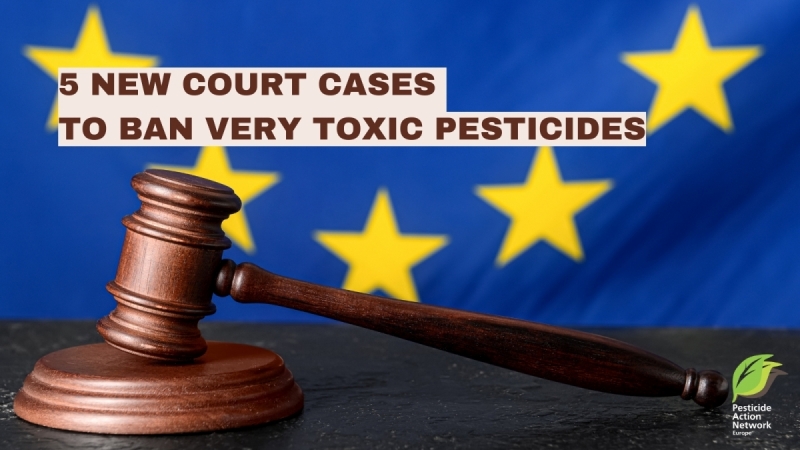Our French member Generations Futures has launched legal actions against the prolongation of 5 very toxic pesticide active substances in EU Court. They also published a new report to denounce the systematic prolongations system used by the EU commission. This system itself is subject of a running court case by PAN Europe.
The very harmful Toxic 12 pesticides Chlortoluron and Tebuconazole should have been banned long ago but received another one year ‘exception’ prolongation pending their evaluation. This has been going on for 8 years now. The maize herbicide S-metolachlor will be banned later in 2024, but should have been banned directly because of its groundwater polluting properties. Every application is one too much. The same accounts for Flufenacet, a PFAS pesticide. And for over 10 years there have been complaints about the very volatile herbicide Prosulfocarb.
With the 5 court cases Generations Futures makes an additional statement against the EU re-approval system. This keeps hazardous pesticides on the market for many years. Pesticide active substances have their approval extended for 5, 6, 8, 10 or even 11 years, beyond the initial approval deadline. The reason behind it? The assessment is delayed.
The delayed re-assessments and prolongations for pesticides at the EU level are a standard pattern. To illustrate this, 136 pesticides have been prolonged in 2021. This accounts for almost 30% of all currently EU-approved pesticides. Only 10 decisions regarding the (non-)renewal of active substances were adopted in that same year. Approval extensions are the norm for even the most hazardous classified substances, so-called 'Candidates for Substitution'. Extensions are granted for over 10 years, like in the case of Chlorotoluron and Flufenacet.
Challenging the system of prolongations
PAN Europe started challenging this system of prolongations in 2022 in a court case against the 7th extension of approval granted to the pesticide Dimoxystrobin. This chemical is another one of the Toxic 12 most toxic pesticides allowed in the EU and should have been banned many years ago. Finally in May 2023 the EU decided to ban this pesticide from 2024 onwards, but the court case against the system of prolongations continues and is expected to be concluded in 2024.
Read more about the court cases and the report on the website of Générations Futures (in French)
